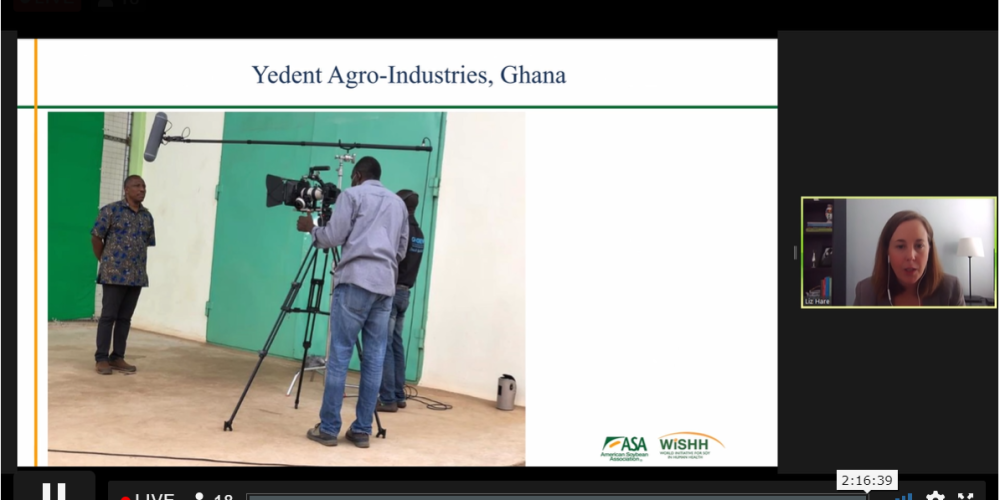WISHH Executive Director Liz Hare presented “Lessons Learned by Processors: Resilience & Pivoting for Protein in Child Nutrition” at a Dec. 1 virtual conference that attracted attendees from sub-Saharan Africa who are engaged in the manufacturing, marketing or research of foods. The program offered soy protein innovations and insights that are applicable to sub-Saharan Africa as well as other growing economies.
Conveners of the conference included: the U.S. Agency for International Development-funded Soybean Innovation Laboratory; AOCS, the global fats and oils professional organization; Institute of Food Technologists; International Institute of Tropical Agriculture; Makerere University; and the National Agricultural Research Organization (NARO), Food Biosciences and Agribusiness Research Programme – Uganda.
Hare shared real-world lessons from WISHH’s two decades of work in sub-Saharan Africa. She presented examples of WISHH’s work with strategic partners who are food processors in Uganda and Ghana, including how WISHH has helped the companies be resilient as they faced COVID-19 challenges. Hare described how soy-based foods are a superior protein ingredient for school meals and can be a commercially viable enterprise for African companies. She also shared how adaptive management improves the food supply chain, and ultimately, improves school meals. Hare also described lessons learned through global mentorship to improve production for school meals.
Caption: WISHH Executive Director Liz Hare shares real-world insights from WISHH’s work with strategic partners who are food processors in Uganda and Ghana.

